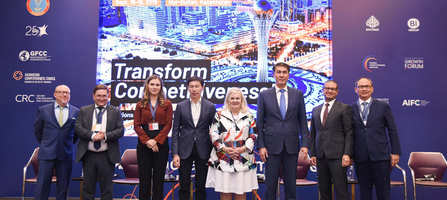
Blogs
Vision of the future
8 June 2021


Anuar Buranbayev
CRC Partner
What country do we want to build? What is the image of the desired future for our country?
One of the starting points for starting the discussion was that the state has a rather attractive Vision of Kazakhstan 2050, but for some reason the authorirties cannot, or maybe do not want to convey this vision to citizens (or subjects, depending on the definition). Below is a direct quote from the main state long-term strategic document of Kazakhstan 2050 – "Concepts for joining the top 30 developed countries in the world." You can write in the comments whether this vision suits you or does not suit you. If not, what do you dislike about it? This is the first step to a discussion.
Vision of Kazakhstan in 2050 The long-term vision for the development of the Republic of Kazakhstan can be formulated as follows. Kazakhstan in 2050 will be among the 30 most developed countries in the world in terms of the income of citizens and the quality of life of the population, with a productive and sustainable economy. This involves meeting the basic needs of a person in a clean environment, affordable and high-quality education, health care and creating opportunities for a citizen’s creative self-realization and highly productive work. Economic growth will be based primarily on long-term growth in labor productivity, capital and resources, diversification of production and exports, and a developed business sector in the country. The economy will be market-oriented and innovative, with high share of science-intensive products, leading in the production of many high-tech products and services in the global market. The country will become a center for generating knowledge and attracting talented scientists. Raw material reserves, and energy resources in particular, will cease to be the main source of state income and will only support the growth of a diversified national economy.
A "sustainable" economy refers equally to the resilience of the economy to global risks and ability to grow without harming the environment. The country's domestic needs for electricity will be met by renewable energy sources. Clean energy and high environmental standards will ensure the country's resilience in the face of the growing threat of global climate change.
The development of high-tech areas of production and agriculture will allow Kazakhstan to win its niche in the implementation of international economic relations. Human capital will become a strategic asset, and the contribution to the intellectual and inclusive development of society will become the most important investment in the long term. Kazakhstan's competitive advantage will be a healthy demographic situation that ensures high natural population growth.
By 2050, Kazakhstan will have built a flexible and efficient system of economic, political, and legal institutions that create a favorable environment for the development of entrepreneurship and self-realization of its citizens. Kazakhstan will be an open country, attracting external resources for economic growth and at the same time actively using the internal development potential. 2050 Kazakhstan will be a highly urbanized state with world-class megacities and a number of smart, competitive and safe cities. The country's major cities will be included in efficient transport, logistics and communication networks that provide a high level of regional integration.
"The same document defines five strategic directions and six principles of long-term development to move towards the desired future. What do you think is wrong with these statements? Once again, a direct quote from the document: “Based on the experience of other successful countries, Kazakhstan should develop its own model of success, focusing on key competitive advantages and the national development priorities arising from them, and effectively implement the plans developed within these priorities to strengthen the competitiveness of the national economy, the development of human capital, as well as the improvement of the political system and the development of democracy. In this regard, it seems possible to single out five strategic directions for the long-term development of Kazakhstan.
1. The development of human capital requires certain conditions for the development of people, the main engine of innovation. The development of human capital involves reaching the level of developed countries in the areas of education, healthcare, social security and the labor market. Improving the quality of education contributes to the formation of a highly skilled workforce, the transfer of knowledge, the exchange of technologies and, as a result, productivity growth.
2. Improving the institutional environment that provides favorable conditions for the development of business and entrepreneurial initiatives, reducing the level of corruption in the country, improving the judicial and law enforcement systems, as well as increasing the efficiency of public administration at all levels.
3. Development of science-intensive industries by adopting a phased approach based on the formation of the necessary industry base for the transition to a knowledge-intensive economy in the long term.
4. Accelerating the formation of infrastructure that supports the creation of a knowledge-intensive economy through increased productivity, the formation of a new territorial development policy, the creation of a national innovation system, modernization of infrastructure and energy efficiency.
5. Deepening integration into the system of international relations through the implementation of multi-vector foreign economic diplomacy, migration policy, participation in initiatives to strengthen regional and global security.
The five strategic directions for long-term development constitute an interconnected complex and should not be implemented separately. If each one of them is effective, they reinforce each other. At the same time, the weakness of some elements will undermine the effectiveness of others.
The development of human capital is at the heart of social and economic development, and high-quality and effective institutions are crucial for the successful construction of a knowledge-based economy. Activities for the implementation of the concept will be based on the following six principles, interconnected with the strategic directions of long-term development of Kazakhstan. These principles will play an important role in designing reforms. Although the meaning of each individual principle in the process of developing measures in a particular area may differ, most of them will be relevant in all policy areas.
1. Openness, as the experience of the 30 most developed countries today shows, is one of the most important conditions for the development of trade, investment activities, attracting qualified specialists, as well as strengthening individual ties between people. Openness is a prerequisite for the development of innovation, which is the engine of a knowledge-based economy. It also determines the transparency of institutions.
2. Competition is a source of continuous productivity improvement, innovation, and competitiveness. Kazakhstan will be able to take full advantage of the opportunities that openness brings only if competition develops in all strategic areas of long-term development. Private businesses, operating in the conditions of free competition, are the main engine of a knowledge-intensive economy.
3. Inclusion implies the most complete involvement of the population in the process of socio-economic development by providing equal opportunities for obtaining high-quality education, access to high-quality medical services and highly productive work for all categories of citizens, including the most vulnerable parts of the population. Inclusion increases the level of mutual trust in society, gives confidence in future, a sense of security, and increases the degree of consolidation of society during periods of economic crises. Employment programs to reduce inequality in the incomes of different segments of the population will be developed. Special conditions that mitigate the consequences of structural changes in the sectors of the economy through the introduction of effective programs for retraining personnel will be created.
4. The rule of law, forming the basis of legal certainty and predictability of the development of society, accountability of state institutions and forming equal game rules for all citizens without exception, contributes to strengthening the confidence of citizens in law enforcement agencies, the Judiciary, and the state in general.
5. Meritocracy creates incentives for the constant pursuit of new knowledge and growth of professionalism. For each citizen, regardless of his or her social affiliation, an opportunity is created independently, thanks to one’s honest work, experience, and desire to grow by "social lift." The experience of introducing the principle of meritocracy in the civil service will be adapted in other areas of public life in Kazakhstan.
6. Sustainability suggests that 2050 is seen not as an end point, but as a threshold on which Kazakhstan must build a platform for the continued functioning of a prosperous and stable society in the second half of the 21st century. In addition, the sustainable development of natural, physical, human, and institutional resources is one of the most important attributes of a successful long-term strategy.
Five strategic directions of development and six principles of activity for the implementation of the Vision 2050 are the guidelines to reach the goals set in the document. Why do I not like it? Well, it looks like they took a strategy and decided to do the opposite. Starting with principles:
1. Openness. Despite the declared openness and the "laboratory of friendship of peoples" that has become an earsore, there is still no consensus in society about our definition of a nation. Civil or ethnic. This our first major divider on the road.
2. Competition. Politicians at the top decided that competition is not good. Favoritism, excessive price regulation and problems with access to key assets concrete the established status quo. Since the adoption of the Vision 2050, there has been a sharp increase in public and private monopolist companies that provide certain goods, drastically distorting competition.
3. Inclusiveness. Concepts have changed. Instead of the inclusiveness of opportunities, there is an increasing emphasis on equality of outcomes and increasing the redistributive power of the state. And it's all about increasing taxes.
4. Rule of law. No comments.
5. Meritocracy. Unfortunately, it didn't work out. The chosen model of "career growth" did not allow creating a high-quality bureaucracy. Thirty years after the collapse of the USSR, and we reproduced not even the Soviet, but the "Stalinist style" of management. When instead of working smart, you just work a lot. Plus, the blurring of personal responsibility through endless meetings, working groups, project offices, interdepartmental commissions, and so on.
6. Sustainability. For seven years in implementing the Vision, there is still no clear definition of what actually is sustainability. In my opinion, the country has an excellent strategy. However, something is wrong with the tactics.
There is hope that the National Priorities, The National Development Plan and National Projects return to the basics of the Vision. The country will start moving towards the desired future based on the adopted strategic directions and in accordance with the stated principles.
all publications











